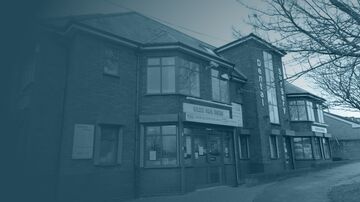
March 17, 2024
Gum & Tooth Abscess Home Remedies: What Works & What Doesn’t
Pain, tender gums, swelling and a bad taste in your mouth. These are all signs that you are suffering from an abscess. This is a serious dental issue that needs to be addressed as soon as possible. A dental abscess won’t go away on its own. It might subside, but it will nearly always return and it will be much worse when it does.
If you are unable to make it to a dentist, home remedies can help you to deal with the issue and cope with the pain. In some cases, your dental abscess could be a medical emergency and home remedies should not be used.
If you have swelling in the face or neck, if your airway feels restricted, or if you have uncontrolled bleeding, this is a medical emergency. Even if you have none of these things, you still have a dental emergency and you should try to see a dentist as soon as possible.

What is an abscess?
An abscess is a bacterial infection that results in a painful collection of pus. If you have a severe dental infection, this can result in an abscess in your tooth root, or it could be along your gum line. If it’s above the gum line, you might be able to feel it with your tongue. It will be a small swelling that feels tender to the touch and it could also feel very hot around the area.
It is commonly caused by tooth decay or advanced gum disease. It could also happen following an injury to your face or teeth. You might not be aware you have an issue with your teeth until you get an unexpected abscess. This is a sign you need to visit an emergency dentist as quickly as possible to get to the bottom of the issue.

Can you treat an abscess at home?
No, you cannot treat an abscess at home. An abscess is a dental emergency that needs to be treated by a dentist. You will likely need a course of antibiotics and then your dentist can address the source of the infection.
An abscess could be caused by tooth decay or gum disease. The underlying issue needs to be addressed along with treating the bacterial infection.
At the first sign of an abscess, you should call a dentist and book an emergency appointment. The abscess is likely to be very painful and this might stop you from sleeping and prevent you from going to work or school.
There are home remedies you can try to make yourself more comfortable while you wait to see a dentist.

What works and what doesn’t work?
If the abscess is on your gum, you can start by rinsing your mouth with warm salt water. This will help to remove bacteria from your mouth and will also provide pain relief. Try a salt water rinse up to three times per day.
Next, you can try taking over the counter pain medication to help address the discomfort you might be experiencing. This could include paracetamol or ibuprofen.
The next step is to use a cool compress on the affected side of your face. A warm compress might feel better temporarily, but the pain will resume quickly. Instead, reach for a cold compress to help draw out the heat from the inflamed tissue.
Many people report that it is more painful when they lie down. This is because it increases the blood pressure to your head, which can cause an uncomfortable throbbing sensation in the infected location. Try propping yourself up with more pillow and sleep in a reclined seated position, rather than lying flat.
Clove essential oil is also known for its pain relieving properties. This can help to relieve the pain, inflammation and provide antibacterial benefits. You can either apply clove oil and a carrier oil to a cotton ball and apply this directly to the affected area, or you can mix clove oil with warm water to make a mouthwash. Apply this up to three times per day.
You should never attempt to drain an abscess yourself as you risk making the infection much worse.
Closing thoughts
If you are suffering from a dental abscess, the most important thing to remember is that you need to visit a dentist as soon as possible. If you leave the abscess to heal on its own, you risk the infection getting much worse and spreading.
While there are steps you can take to make yourself more comfortable at home, these are not the same as treatments. These are simply steps you can take to minimise your pain and discomfort while you wait for an appointment.
Your dentist will drain the abscess, prescribe antibiotics to clear up the infection and then look at steps they can take to save your tooth. This could mean a root canal treatment once the infection has cleared up.
Join the practice
We offer excellent care and advice regarding our wide range of treatments to all of our patients.
Contact our main practice
0121 561 3526Find your nearest practice
Related articles
You may also be interested in
